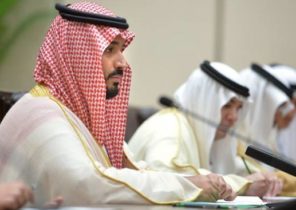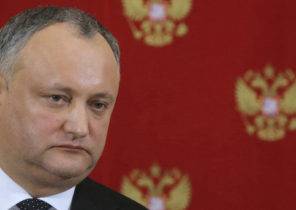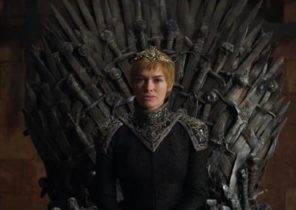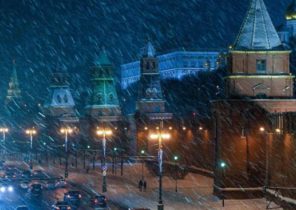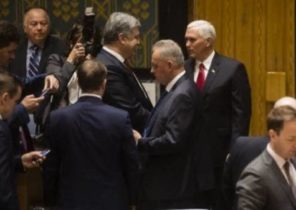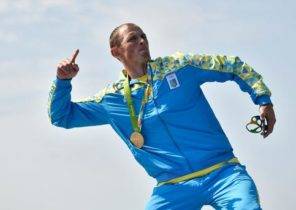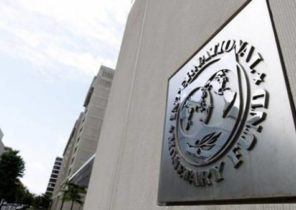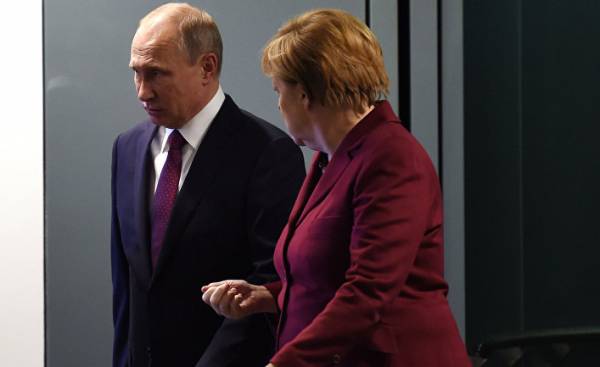
A recent initiative of Christian Lindner on cooperation with Russia caused a lot of noise. However, he actually suggested something self-evident: we in any case should not abandon the dialogue with Russia.
We again managed to escape. After all, in the Netherlands, Austria or France forces, intending to send the EU “to the dustbin of history,” remained in the minority. In the UK it was different, however, the upcoming Brakcet demonstrated to the French the real value of Europe. Emmanuel macron is the personification of the new wave: in the evening after his election victory he joined his cheering supporters to the sounds of the European anthem and stated that he is interested in a strong EU, and in close partnership with Germany. The young President at the Elysee Palace revealed that, speaking for a United Europe, you can win. Take another look at the integration of our continent along with PACSICOM” made the controversial statements of the American President. It became obvious that if the US shumoizolyatsiya, our unity will be even more important. The time has come when many former skeptics once again appreciate Europe.
Brakcet whatever regrets he may have caused in economic terms, gives a chance to “restart” a common foreign and security policy. The EU is located strategically in an extremely difficult environment: Russia and Ukraine, Turkey, Syria, Egypt and the African continent in fact, are we “on the verge”. And political circles in these countries or aggressive and authoritarian or chaotic and are at risk. In some places there are “mixed” with elements of both. At the same time a clear three points: first, in the EU there is no state, which, by the above-mentioned environment could achieve success alone; secondly, Europe faces the challenge to incorporate at least partial “rejection” of the US in maintaining stability in our strategic environment; and third, we need to get rid of illusions that the rest of the world will soon become like Europe.
Rigidity is nowadays almost as important as the ability to dialogue. Soon to be its rigidity, it is enough to point to the transatlantic relationship. In part, this can be done now because, despite fair criticism of the US President, we can’t forget that part — and voluntary — dependent on America. In addition, Europe needs to act more actively using its diplomatic potential, but not forgetting to maintain their own armed forces. This also applies to Germany, which after the international security conference in Munich 2014 seems to have made the first steps in this direction, but at the moment, forced to witness the candidate in chancellors from the SPD, which broke the “Munich consensus” and instead says the arms build-up, and we are talking about is to provide the Bundeswehr with suitable equipment. The situation with the search for opportunities for dialogue are still ticklish. Reaction to absolutely the right call Christian Lindner not to exclude Russia from international cooperation, despite contrary international law the annexation of Crimea has led to a sort of “mixture” of the intentional differences and honest excitement. While Lindner said only what I said even the authorities in Kiev: the quick return of the Crimea to the Ukraine can not count, and that a lot of work using peaceful, diplomatic means. Until then, until that happens, the sanctions will remain in force. But in those areas where Europe and Russia have a common purpose, as, for example, in connection with Iran’s nuclear program or the fight against Islamic terrorism, they must continue to operate.
Turkey has developed a more complex situation. The country for the past many years — and not only after the failed coup in July 2016 — moving further away from Western values. No one believes she’ll ever be able to join the EU. However, the CDU and the SPD in favour of continuing negotiations. The FDP does not want it, because the authoritarian accession of Turkey to the EU would mean the collapse of hopes on the ability of Europe to action. So what is the motive of the European policy of stimulating us. In the foreign policy aspect, however, it is clear that this great and proud country and will remain our neighbor, with whom we need to interact. So call liberal forces to create a fair base for our future relations and to the replacement of the accession negotiations of Turkey to the EU dialogue on this very basis, which would include the whole range of issues ranging from energy policy and the customs Union and to scientific exchanges and other important topics.
The development of the situation in Russia and Turkey along with the “Arab spring” has demonstrated one thing: popular since 1989, the place the idea that the whole rest of the world as it is automatically evolves in the direction of democracy, formation of legal state and market economy have, at least temporarily “freeze”. At the same time, these values must continue to be our “guiding thread”. We need to support pluralism and the development of civil societies, to support the dissidents and the Democrats wherever they are subjected to pressure authoritarian regimes. The “field of tension” European foreign and security policy stretches between our values and what can be done in these areas in the above mentioned neighbouring countries. Cooperation with governments that reject these values, of course, we also can’t give up completely. This, of course, not everyone will like, but the situation is that Germany and Europe can not just up and change the world to your liking, if you refuse this communication. And it namely this: the very essence of the foreign policy of the XXI century is to defend our liberal values and interests wherever possible.
